Popiah, pottery and Peranakan plays: 6 win inaugural award for intangible cultural heritage
Sign up now: Get ST's newsletters delivered to your inbox
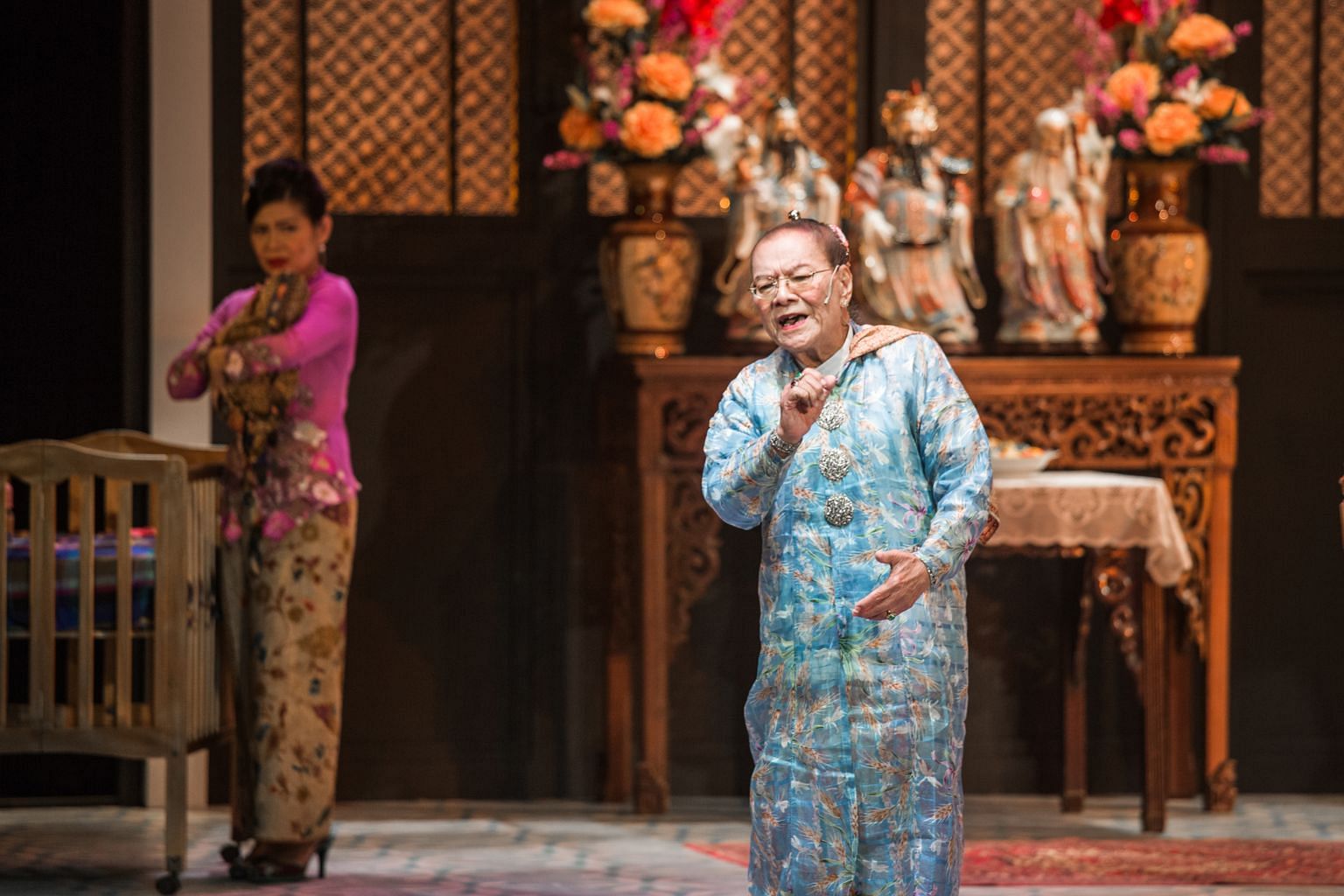
Veteran female impersonator G. T. Lye is still fighting for the art of Wayang Peranakan.
PHOTO: COURTESY OF THE GUNONG SAYANG ASSOCIATION
SINGAPORE - A pioneer of Peranakan theatre and the owner of one of Singapore's oldest popiah shops are among six winners of an inaugural award for promoting intangible forms of cultural heritage.
The winners were announced on Thursday (June 4). Each will receive $5,000 in cash and be eligible to apply for a project grant of up to $20,000 to further fund their work.
Launched by the National Heritage Board (NHB) last October, the Stewards of Singapore's Intangible Cultural Heritage Award recognises individuals and groups that have made excellent contributions in preserving and transmitting cultural skills or knowledge in their respective fields.
These groups or persons must each have at least 10 years of experience in their vocation and be well-respected by their community.
Mr Tan Teck Yoke, the current owner of Thow Kwang Industry, said the award recognises the hard work of three generations. His family-run business operates one of the last two "dragon" kilns in Singapore.
"We have been keeping this alive till now, and it is worth it. We also feel a greater responsibility to spread this cultural heritage to the next generation," said Mr Tan, 65.
The sentiment is shared by Mr Aravinth Kumarasamy, 54, of Apsaras Arts, who said the award represents the "sacred responsibility" of nurturing Indian classical dance.
"This is so our next generations can be proud of a living tradition practised among the community and not just a museum show piece."
The award, said Mr Aravinth, is also a much-needed positive encouragement at a time when many arts groups are struggling due to the Covid-19 pandemic.
For example, Peranakan theatre veteran G. T. Lye has seen several projects shelved. An international Peranakan convention that was to be held here in November was postponed.
"I pray hard that my health will allow me to do it next year," said the 81-year-old Wayang Peranakan pioneer who is known for his female impersonations.
Other winners, such as Apsaras and Nam Hwa Opera, a prominent Teochew Opera company, have seized the opportunity to further digitalise their work by going online during the coronavirus outbreak.
The Sri Warisan Som Said Performing Arts group has started using video-conferencing platform Zoom to communicate while practicing Malay traditional arts like Bangsawan and Dikir Barat at home.
The pandemic has also provided an opportunity for the different groups to give back to the community in additional ways.
Mr Michael Ker, 44, the third generation owner of 83-year-old family-run Kway Guan Huat Joo Chiat Popiah, has donated hundreds of rolls of the well-loved local dish to hospitals, including Singapore General Hospital and Changi General Hospital, as a way of showing his appreciation to frontline workers.
"I was inspired by my customers. Some came in to buy my food to distribute it to those less fortunate and they showed me the positive side of these tough times," he said.
For the inaugural winners, the long-term challenge is appealing to the young even as they stay true to their respective traditions.
Mr Ker said he has cousins and nephews in their 20s who have shown an interest in popiah-making.
"I hope I can spur the younger generations to take the unconventional path. But it must come from them, you can't force it. It's not an easy thing to do," he said.
Nam Hwa president Toh Lim Mok, 72, said the importance of preserving and promoting intangible cultural heritage lies in its roots.
"Roots are important for building up a person's character by inculcating values, and if you want to keep these values, then the preservation of art forms is key," he said.
Mr Yeo Kirk Siang, director of heritage research and assessment at NHB, said it looked forward to working with the winners to further raise awareness and participation in their fields.
"Our intangible cultural heritage is integral to our way of life and our multicultural identity as Singaporeans," he said.
Here is more information on the six award winners:
THOW KWANG, FAMILY-RUN POTTERY BUSINESS
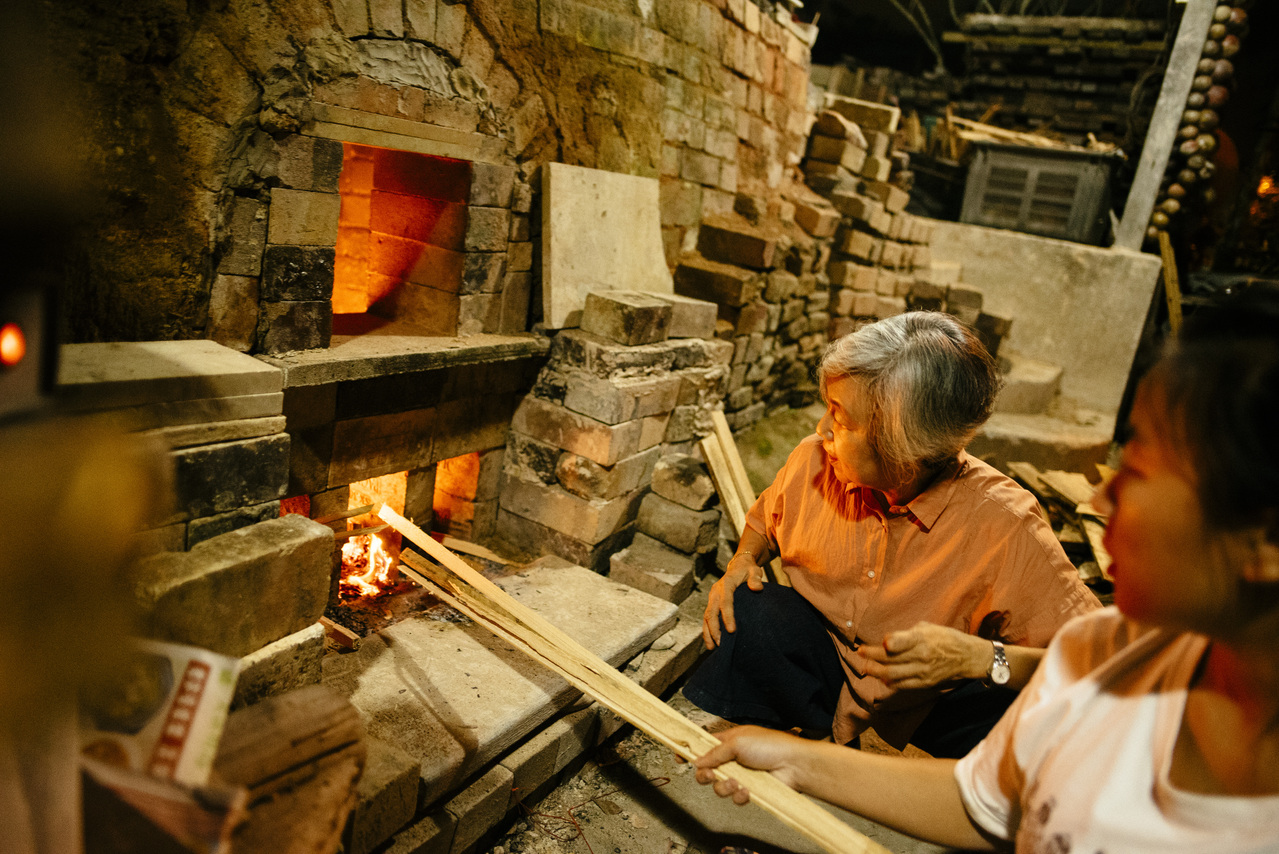
Thow Kwang Industry operates one of the last two "dragon" kilns in Singapore.
PHOTO: ST FILE
A third-generation family pottery business, Thow Kwang has been trying to engage different audiences to share its craft and explore ways to digitalise.
These include programmes at kindergartens, primary and secondary schools, as well as touring the famous "dragon" kiln, said Mr Tan Teck Yoke, 65, the second generation owner.
His niece, Stella Tan, 29, has come on board with fresh ideas to market pottery products on social media and at art exhibits and markets.
Mr Tan's wife, Mrs Yulianti Tan, 61, has also been volunteering at Apex Rehab Centre in Redhill, using the process of shaping clay as a form of therapy for the elderly there.
But at the heart of the company's business is still the longyao or dragon kiln, one of only two left in Singapore. It is so named because its long, hollow brick structure resembles the creature of Chinese myth.
It was Mr Tan's father who bought the kiln after he came to Singapore from Swatow, China, and sold his first pottery wares in 1965 - the year Singapore became independent.
Now Mr Tan has plans to immortalise this pottery-making process by creating a virtual tour.
"The longyao itself is a living fossil, it records the generations this art has been passed on, even as Singapore, a young country, has developed," he said in Mandarin.
GT LYE, PERANAKAN THEATRE VETERAN
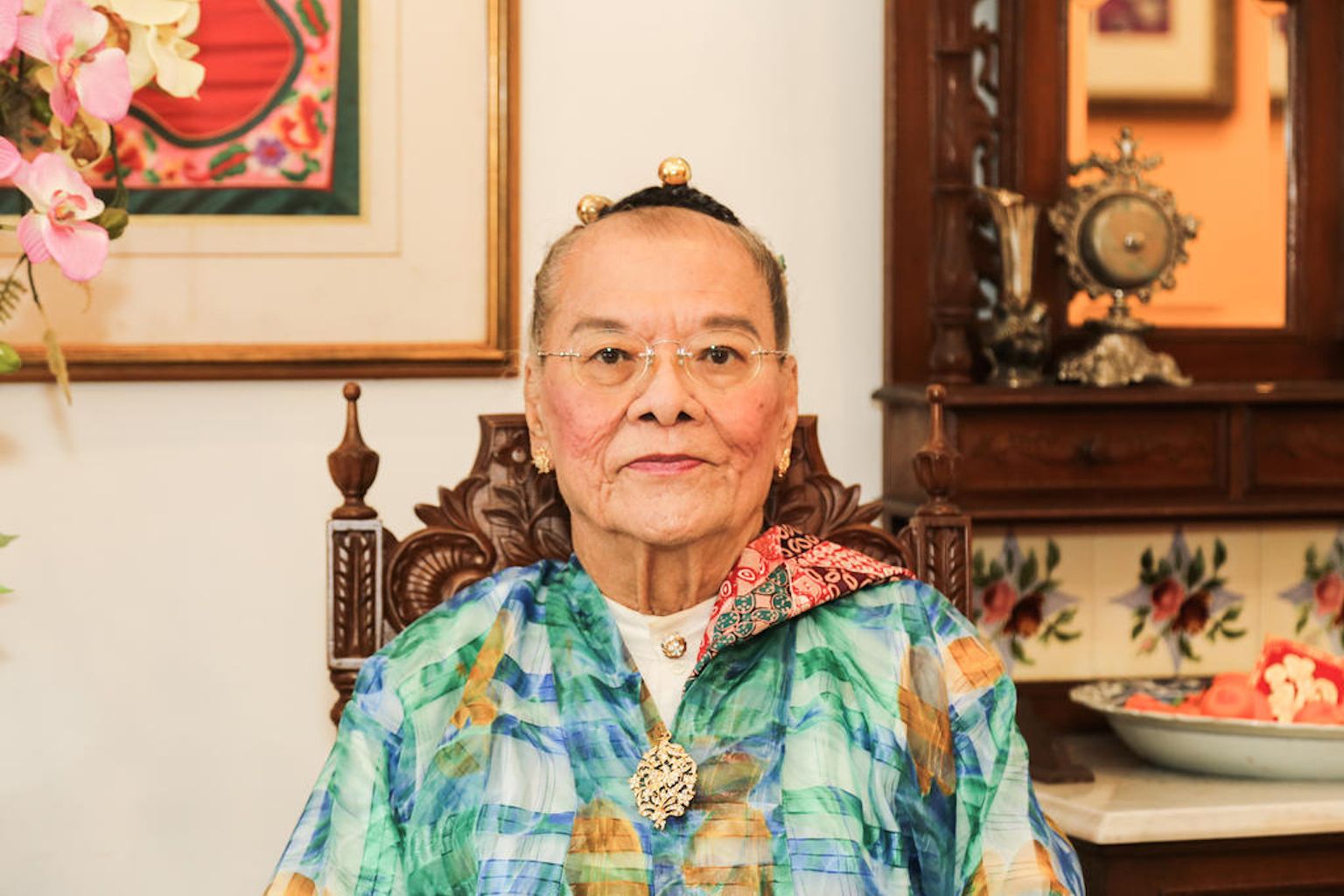
At 81, veteran female impersonator G. T. Lye is still fighting for the art of Wayang Peranakan.
The theatre form might have disappeared for good had it not been for Mr Lye, who is credited with reviving it in the 1980s.
His first role was that of a father in Pileh Menantu ("Choosing an in-law"), a play about a typical Peranakan family commissioned by the then Ministry of Culture in 1984.
It was a hit. Seeing its success, the Peranakan Gunong Sayang association took up the art form.
The very next year, he would play his first matriarch for the association in Buang Keroh Pungot Jernih ("Let bygones be bygones"), a play about two bickering daughters-in-law and their eventual reconciliation.
His shows entertained many dignitaries, including several ministers and the Republic's late Presidents Wee Kim Wee and S R Nathan.
Mr Lye, however, entered the theatre world only in his 40s, after a life full of twists and turns.
He was given up for adoption at birth to a poor family, after a soothsayer told his mother he would bring bad luck. Though eventually returned to his birth family, he never got along with them.
Despite this, he worked hard to earn a living, doing multiple jobs.
Today, he is an active champion of Peranakan arts and culture, both through play-writing and directing, and advising various organisations on related projects.
MICHAEL KER, THIRD-GENERATION POPIAH MAKER

Thanks to Mr Michael Ker, 44, even people living in New York and Copenhagen have tasted a much-loved Singaporean dish: the popiah.
Since he took over from his father about eight years ago, the third generation owner of Kway Guan Huat Joo Chiat Popiah has found new ways to expand the 83-year-old home-grown brand.
One was by collaborating with the Singapore Tourism Board to bring the dish to festivals promoting Singaporean food around the world.
Mr Ker has also been updating the humble roll in different ways, adding sesame, pandan or egg to the delicate paper-thin popiah skin, or offering do-it-yourself popiah kits.
But otherwise, he has stuck to tradition, which requires hours of back-breaking work making the popiah skins by hand.
Mr Ker said it is important to educate the public about the dish.
To this end, the shop has also been holding food tours for tourists to explain the origins and craft behind popiah and Mr Ker hopes to eventually have a heritage gallery that showcases the popiah's history.
APSARAS ARTS, INDIAN CLASSICAL DANCE GROUP
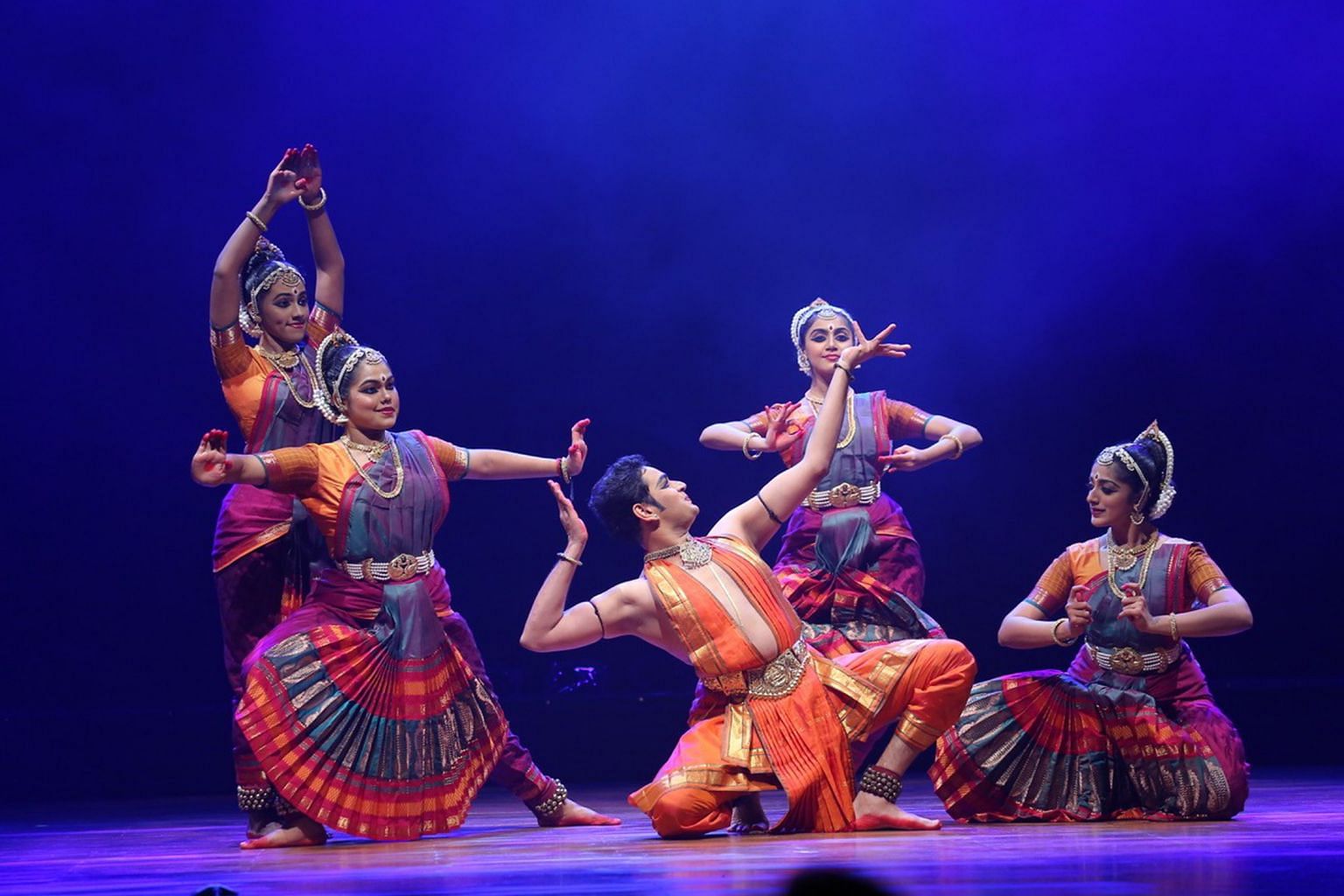
Trying to stay up to date and yet true to its roots at the same time, Apsaras Arts has blended strict adherence to Indian classical dance techniques with contemporary story-telling.
Under its current director Aravinth Kumarasamy, a National Arts Council Young Artist award winner, the group has branched into schools and digital technologies to keep itself relevant.
The group, started in 1977, has two main functions: one as an Indian dance academy for performers, choreographers and teachers, and the other as a full-time repertory company.
In bringing the art of Indian classical dance to the young, Mr Aravinth said Singapore has done a good job of introducing the arts in schools. But narratives for their current performances still need to be relevant.
"Indian dance is about story-telling. Even if you pick a story from the age-old epics, we have to add a contemporary feel," said the 54-year-old.
This can be done through technology, which can also help with presenting the ancient art during challenging times. In the current Covid-19 pandemic, for example, Sistic chose the group's performance to be streamed online.
Another way to make it feel relevant at present, is innovation in terms of set design, lighting or fresh perspectives. Apsaras Arts performed the ancient epic of Ramayana in 2017 to sold-out seats, but with a twist; instead of being told from the perspective of Rama, the main hero, it focused on his companion Hanuman, a divine monkey.
SRI WARISAN, MALAY PERFORMING ARTS GROUP
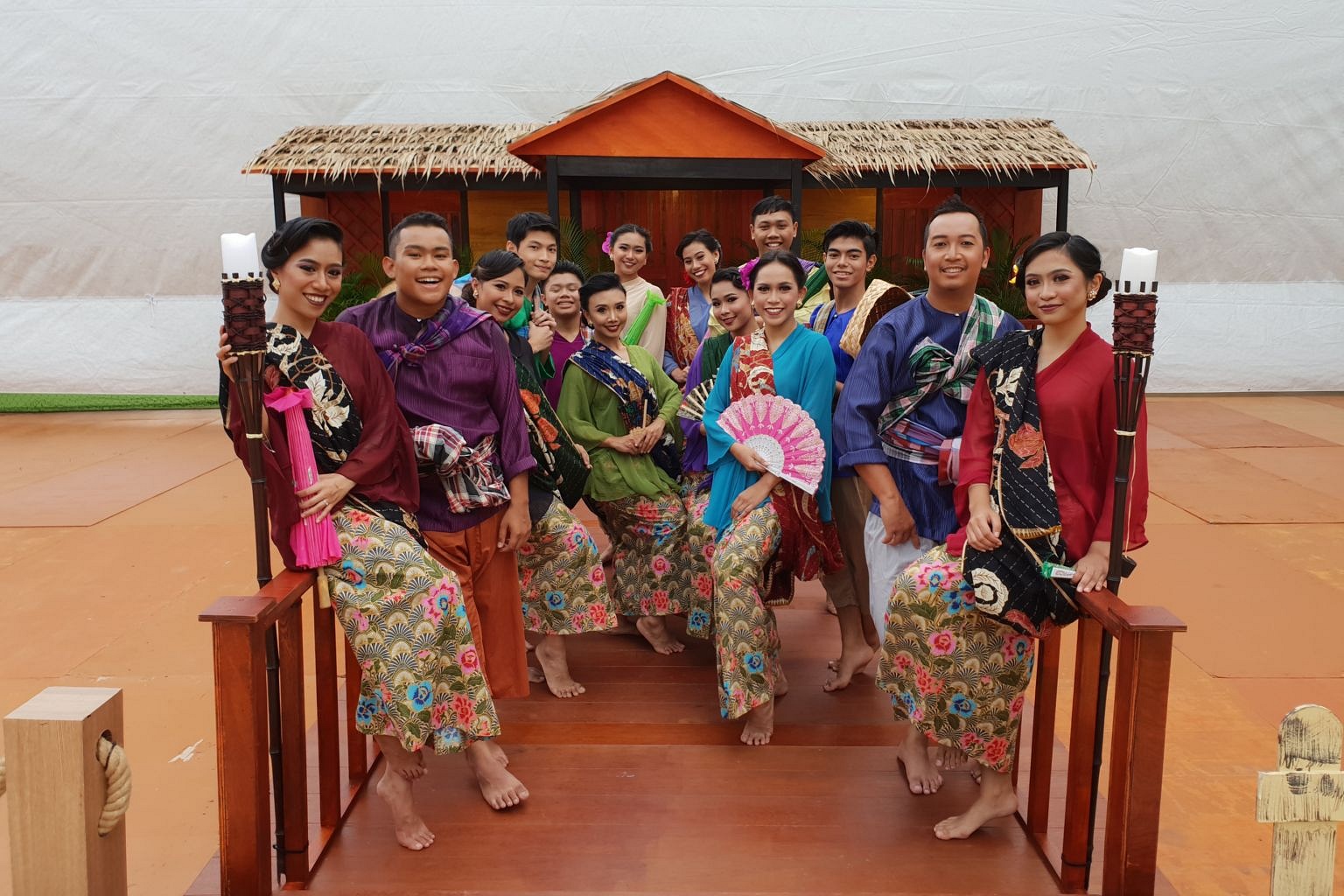
Malay performing arts group Sri Warisan is making heritage "glow", said its founder and Cultural Medallion winner Madam Som Said.
It has brought traditional Malay art forms like wayang kulit, or shadow puppet theatre, and dikir barat, a form of choral singing accompanied by percussion, to over 110 cities in 40 countries, through competitions and performances.
In Singapore, it has conducted 17 arts initiatives - including workshops, music and hands-on programmes - in various local schools.
When classes at school premises were discontinued during the circuit breaker period, the group transitioned to using videoconferencing to continue communicating with each other and to keep practising their craft at home.
Said Madam Som, 69: "In a multiracial society such as ours, it is all the more important to enrich tradition even as we move forward, for it to stay relevant."
NAM HWA, TEOCHEW OPERA GROUP
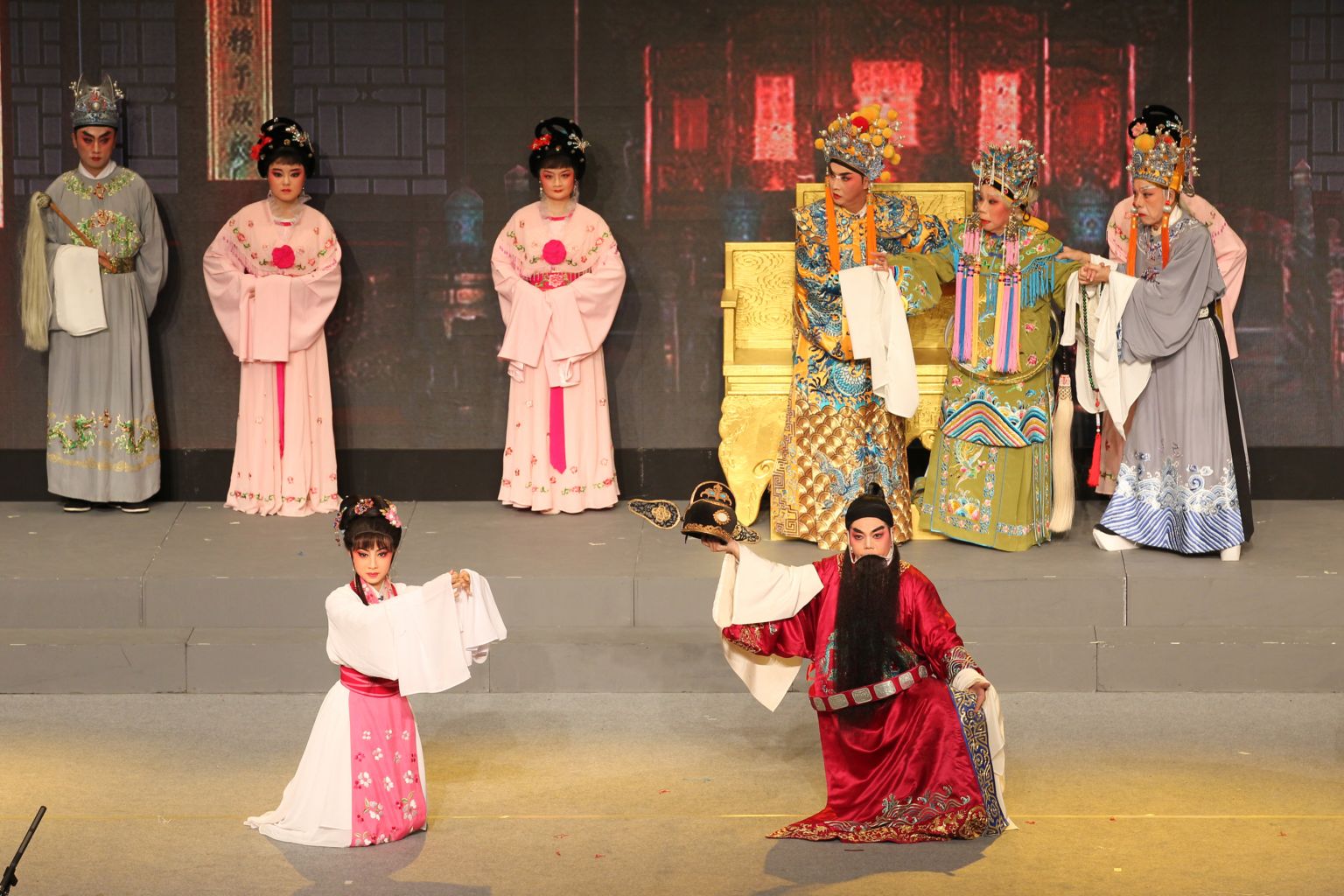
More than just performance, Teochew opera is a conduit for transmitting traditional culture and values, such as filial piety, to the young.
Nam Hwa Opera president Toh Lim Mok, 72, is focusing on efforts to dig deep into the roots of the art form even as the group tries to appeal to the youth.
It has set up a research centre to delve into the history of Teochew opera and its development, and collaborated with the National University of Singapore to encourage its students to also do so.
The group was set up in 1963. It has funded scholarships for research work into these areas of up to $15,000 a year for two years. It is currently exploring tie-ups with universities in China.
Mr Toh shared that during the last decade, classes in local schools and hiring younger instructors from China who have at least eight to 10 years of experience in opera troupes, have met with some success.
He is now hoping to enter the digital space. The group even uploaded some of its performances on social media to engage Singaporeans who had to stay home during the circuit breaker period.
"This is an opportunity for us to strengthen our outreach, not just to the Singapore audience, but also internationally," said Mr Toh.


